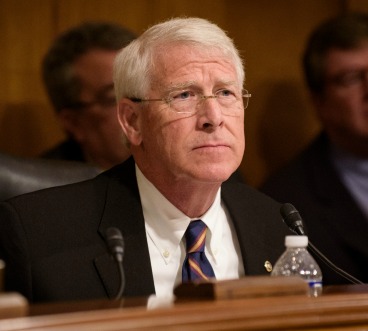WASHINGTON—In a letter to Swiss Ambassador Jacques Pitteloud released today, Helsinki Commission Co-Chairman Sen. Roger Wicker (MS) urged the Government of Switzerland to take the necessary steps to restore confidence in the integrity of the Magnitsky investigation and ensure its timely resolution.
The letter reads in part:
“Sergei Magnitsky’s story has become emblematic of the struggle of many Russians to fight the corruption of their own government at great risk to themselves. While I have been dispirited by the brutality shown the Russian journalists and civil society activists who carry on Magnitsky’s legacy of bravely telling the truth, I am also heartened by the tenacity of these individuals. They depend on countries like ours to hold their oppressors to account.
“Given all that is at stake, I was surprised to learn that a Swiss Federal Police officer, Vincenz Schnell, went on a bear-hunting trip with Russian prosecutors paid for by Russian oligarchs. Though he has now been found guilty of accepting this and other gifts from Russia, the Magnitsky case has lingered for years and will be nearing its end when the statute of limitations expires in 2023.”
Schnell’s former boss and top Swiss law enforcement official, Federal Prosecutor Michael Lauber, currently is facing impeachment proceedings following allegations of mishandling high-profile corruption and money laundering cases. For example, Lauber was forced to recuse himself from a U.S.-led investigation of corruption within FIFA, soccer’s international governing body, after it was discovered he was meeting with FIFA’s president. Russian officials were among the targets of this investigation for bribes paid to secure the World Cup.
The full text of the letter can be found below:
Dear Ambassador Pitteloud,
I was troubled to learn that the most senior Russia specialist in Swiss law enforcement with responsibility for investigating the Magnitsky case was caught accepting gifts from Russian officials. The reports indicate that these gifts were meant to stymie the swift administration of justice in this case.
As a member of the Helsinki Commission, I have followed this case from its inception. Sergei Magnitsky’s story has become emblematic of the struggle of many Russians to fight the corruption of their own government at great risk to themselves. While I have been dispirited by the brutality shown the Russian journalists and civil society activists who carry on Magnitsky’s legacy of bravely telling the truth, I am also heartened by the tenacity of these individuals. They depend on countries like ours to hold their oppressors to account.
Given all that is at stake, I was surprised to learn that a Swiss Federal Police officer, Vincenz Schnell, went on a bear-hunting trip with Russian prosecutors paid for by Russian oligarchs. Though he has now been found guilty of accepting this and other gifts from Russia, the Magnitsky case has lingered for years and will be nearing its end when the statute of limitations expires in 2023.
The last Swiss actions that I am aware of in the Magnitsky case were the 2011 freezing of $11 million against Olga and Vladlen Stepanov and the 2012 freezing of $8 million against Prevezon. In the United States, we have added the Stepanovs to the Magnitsky sanctions list, where their assets are frozen and visas cancelled for their role in the Magnitsky case. U.S. law enforcement also prosecuted Prevezon for using proceeds from the Magnitsky case to purchase New York real estate and Prevezon has now paid a $6 million settlement to our government.
My Senate colleagues and I are committed to seeing justice done in the Magnitsky case and preventing Russian kleptocrats from reaping the proceeds of corruption. I hope to hear from you as to what steps your government has taken and will take in the future to restore confidence in the integrity of this investigation and ensure its timely resolution.
Sincerely,
Roger F. Wicker
Co-Chairman









